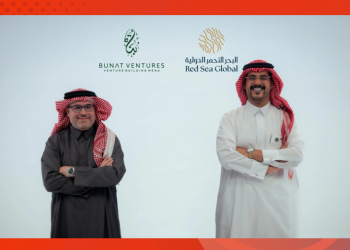The United Arab Emirates has launched Tahweel, the country’s first national digital marketplace for recyclable materials. Developed by the Ministry of Climate Change and Environment in partnership with BEEAH Group, the platform is designed to accelerate the UAE’s circular economy and transform how recyclable waste is traded and reused.
What Is Tahweel?
Tahweel provides a central digital platform where suppliers and buyers of recyclables can trade efficiently. The marketplace supports multiple categories of materials, including metals, plastics, paper, wood, e-waste, glass, and rubber.
The platform offers flexible trading options such as timed auctions, instant sales, and partial auctions. This ensures that supply and demand are matched quickly while promoting transparent pricing across the sector.
Why It Matters
Tahweel addresses several challenges that have limited recycling efficiency in the UAE:
- Reducing bureaucracy: The platform is part of the government’s Zero Bureaucracy initiative, which aims to cut down administrative delays and manual processes.
- Fair pricing: Direct digital trading reduces reliance on middlemen, ensuring clearer and more competitive pricing for recyclables.
- Economic opportunity: By treating waste as a valuable resource, Tahweel supports new revenue streams for businesses and reduces dependence on raw materials.
- Environmental benefits: The marketplace helps divert materials from landfills, improves recycling rates, and supports emissions reduction targets.
Alignment with National Goals
Tahweel aligns with the broader vision of “We the UAE 2031,” which seeks to position the country as a global hub for innovation and sustainability. It also reflects the government’s strategy of combining public policy with private sector expertise to scale environmental and economic impact.
Key Features
The platform introduces several innovations to the recycling sector:
- Real-time matching of buyers and sellers.
- Multiple trade formats for flexibility.
- Integration with Zero Bureaucracy reforms.
- Accessibility for both large enterprises and small businesses.
- Educational and technical support to encourage adoption.
Challenges Ahead
While Tahweel represents a major step forward, its success will depend on:
- Broad industry participation from waste producers and recyclers.
- Reliable data and quality assurance for traded materials.
- Logistics and infrastructure to support the physical movement of recyclables.
- Strong regulatory enforcement to maintain compliance and standards.
Conclusion
Tahweel signals a new chapter in the UAE’s journey toward a circular economy. By digitising the trade of recyclables, the country is unlocking both economic and environmental value while setting a model for other nations. If widely adopted, the platform could redefine waste management by proving that recyclables are not just waste, but valuable resources for future growth.













